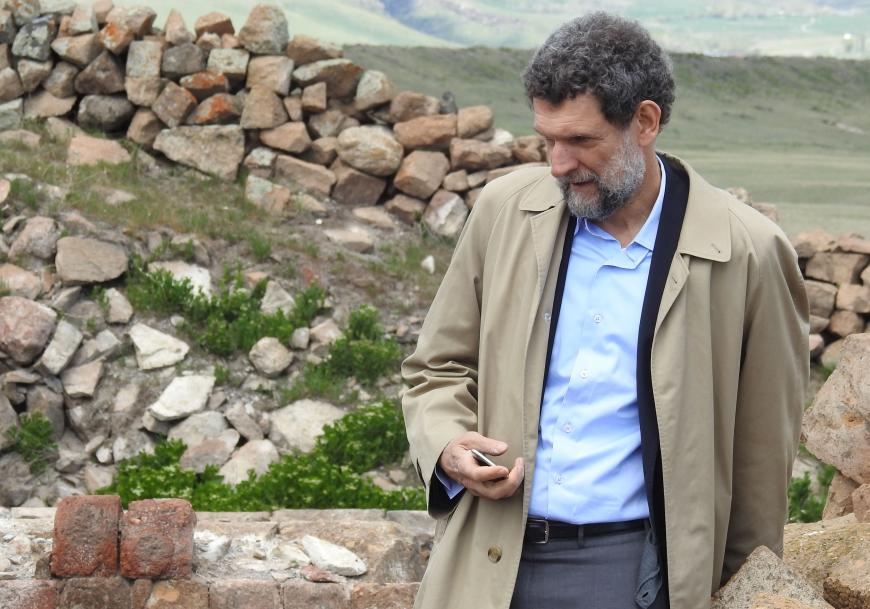The Committee of Ministers of the Council of Europe on Friday decided to launch an “infringement proceeding” against Turkey — a step that will further alienate this country, especially in the West.
Council of Europe founding member Turkey was also subjected, in the 1990s, to a “monitoring procedure,” which is a lighter sanction. This procedure was lifted in 2004 thanks to the genuine efforts of Turkey’s ruling Justice and Development Party to improve the country’s standards of democracy and human rights.
But, in April 2017, Turkey was once more subjected to the monitoring process because of the serious deterioration in its human rights record. It thus became the only country to be released from the monitoring process, only to be returned to it at a later date. This demonstrates that, unfortunately, Turkey has not been able to maintain stable standards in this field. Now it is faced with disciplinary measures for a third time, but this time in a harsher form.
What prompted the council to start its latest proceeding is Turkey’s deliberate noncompliance with a verdict handed down by the European Court of Human Rights about Osman Kavala, a Turkish businessman and philanthropist. He was arrested in October 2017 on the allegation that he was the organizer and financier of the Gezi Park events of 2013, which broke out as a spontaneous protest against the cutting down of trees in a central park in Istanbul and which President Recep Tayyip Erdogan perceived as an attempt to overthrow the government.
Every stage of the court procedure against Kavala looks like a travesty of justice. The sixth and final hearing was held on Feb. 18, 2020, and Kavala was acquitted, but then arrested again before leaving the courtroom, this time on three different charges: “Attempting to overthrow the constitutional order of the Turkish Republic and replace it with another order,” “preventing the Turkish parliament from performing its duties,” and “preventing the Turkish government from performing its functions and abolish it.”
In his injunction, the public prosecutor proposed three aggravated life sentences for Kavala, plus imprisonment of up to 20 years. The drafting of an injunction for such serious accusations takes months, if not years, of preparation, but the coincidence of making it public at the moment of Kavala’s acquittal raises the possibility that it was hastily drafted at the last moment.
The government gives the impression that it does not care much about what the Council of Europe does.
Yasar Yakis
The Committee of Ministers of the Council of Europe had warned Turkey that it would launch the infringement proceeding if Kavala was not released by Dec. 2. It is now going ahead with this action.
The deadline for Turkey’s answer was Nov. 26. There was a widespread expectation that the court might release Kavala. However, at the request of the public prosecutor, the court refused to release him, although one of the judges dissented by saying that all the evidence had already been collected, that there was no possibility of distorting it, and that therefore he should be released.
The council’s infringement proceeding has now been initiated. The Turkish Foreign Ministry issued a statement inviting “the Council of Europe to avoid further steps, which would mean an interference in the independent judiciary.” So far, Ankara has maintained that Kavala’s previous court case has already concluded, that he was duly acquitted, and that he is now being tried in an entirely new case. The statement was silent on why the European Court of Human Rights verdict has not been implemented. This is nothing but a convoluted method of dissimulating the truth.
The Council of Europe has 47 members, including countries with low standards in the fields of democracy and human rights. Ankara will probably try to obtain the support of at least a third of the member countries (16 votes) to block any decision that would embarrass it.
In its September 2022 meeting, the council will consider the next steps with regard to the proceeding against Turkey. There are four possible outcomes: No action, a monitoring procedure, a suspension of Turkey’s right to vote in the council’s Parliamentary Assembly, and expulsion from the council.
If Turkey is expelled, it would be the first country to be kicked out of this important European institution. It would also cause a major shift in Turkey’s place in the power balance between East and West. The present government in Turkey gives the impression that it does not care much about what the council does in this situation.
Ankara may slam the door, but this will have a heavy price. Therefore, it would do better by leaving aside the tricky ways of circumventing the jurisdiction of the European Court of Human Rights and take Turkey back to where it was in 2004, when the Council of Europe lifted its monitoring procedure.
- Yasar Yakis is a former foreign minister of Turkey and founding member of the ruling AK Party. Twitter: @yakis_yasar
Source: Arab News
***Show us some LOVE by sharing it!***



